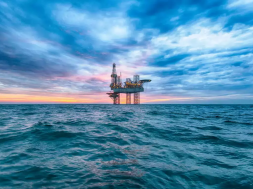
China plans to catalyse production of electric vehicles
China is said to be considering the introduction of compulsory quotas for carmakers that would require them to produce more electric vehicles or purchase carbon credits from their peers, in a bid to tighten emissions and support companies in developing what the government considers a strategic industry.The proposed measure will require certain automakers to produce or import new-energy vehicles in proportion to the number of fuel-burning cars they sell, according to a draft document prepared by China’s National Development and Reform Commission.
Companies that fail to achieve the carbon dioxide emissions reduction targets would be required to buy credits or pay fines of as much as five-times the average price of the credits, the country’s top industry regulator and policy maker said.
China’s government has been announcing policies to accelerate the sale of electric vehicles and last year, it surpassed the US as the largest market for electric vehicles. According to Bloomberg New Energy Finance, electric vehicle sales in China in Q1 2016 saw a year-on-year increase of 181%. Our latest outlook on the electrified transport market can be read here . The world’s most populous nation wants sales of new-energy vehicles to exceed 3m units a year by 2025. To encourage production and sales, its central and local governments have spent CNY 15bn ($2.3bn) on subsidies since 2009, according to state-run China Central Television. However, Chinese officials plan to scale back subsidies for electric vehicles by 2020, and this initiative will mark a transition away from a subsidy-driven approach to catalysing sales of cleaner cars.
Elsewhere in Asia, the Indian Renewable Energy Development Agency (IREDA) said it would issue as much as $150m in offshore rupee bonds by November to support the nation’s plans for green power, according to a top official. IREDA – a government agency that extends financial assistance for renewable energy and energy efficiency projects – approved loans worth INR 78bn in the financial year ending March 31 while also disbursing INR 43bn to borrowers. Its lending represents a year-on-year increase of 60%, according to Ireda Director of Finance Satish Kumar Bhargava.
The bonds follow INR 17.16bn already raised by IREDA in January. The bonds will be issued on either the London Stock Exchange or the Singapore Stock Exchange, he said.
Meanwhile, in Europe, UK Prime Minister Theresa May has written to Chinese President Xi Jinping and Premier Li Keqiang to express her desire to enhance trade and strategic ties, Britain’s new Asia envoy said. Alok Sharma, on his first official visit to China since being appointed Minister for Asia and the Pacific last month, told Chinese Foreign Minister Wang Yi in Beijing that the UK attaches great importance to cooperation with Beijing, according to an online statement by China’s foreign ministry. Sharma called China an “important global strategic partner.”
The message comes as May last month postponed approval of the GBP 18bn ($23bn) Hinkley Point nuclear power plant in southwest England – the first to be built in the country in three decades. The decision stunned Chinese and French backers, who had hoped to sign construction contracts immediately.
Also in the UK, Macquarie Group reached financial close on the GBP 900m ($1.2bn) biomass power plant, located in northern England. The Tees Renewable Energy Plant, which will run on wood pellets and chips, will have a capacity of 299MW once complete.
Macquarie would have a 50% ownership stake with the remaining 50% held by Pensionskassernes Administration.
The facility is expected to generate electricity for the equivalent of 600,000 homes according to the project website.
In other large deals this week, the EUR 1.6bn ($1.8bn) Merkur offshore wind project, located in the German North Sea also reached financial close, contributing to a strong week for European renewable energy projects.
Switzerland-based Partners Group Holding invested EUR 250m for 50% of the wind project, according to a statement. InfraRed Capital Partners Ltd.’s Infrastructure Fund III took a 25% stake for EUR 125m. Belgium’s Dredging Environmental & Marine Engineering, General Electric. and the French Environment and Energy Management Agency also took stakes.
The 400MW wind project is expected to power 500,000 homes once complete.
Total commitment to European renewable energy projects reached a record $7bn in 2015 — up 8% from 2014. Last year saw a lower level of direct equity investment in projects by institutions than the previous year but a higher value of commitments via ‘platforms’ — funds created by a lender or equity investor, in which the latter commits money alongside institutions like pension funds. 2015 also saw significant activity in project bonds. Already in 2016, more money has been committed in direct investment by institutions than the whole of last year — as quoted project funds have struggled to raise new equity in the same way they did before the summer 2015 crash of the yieldco.















